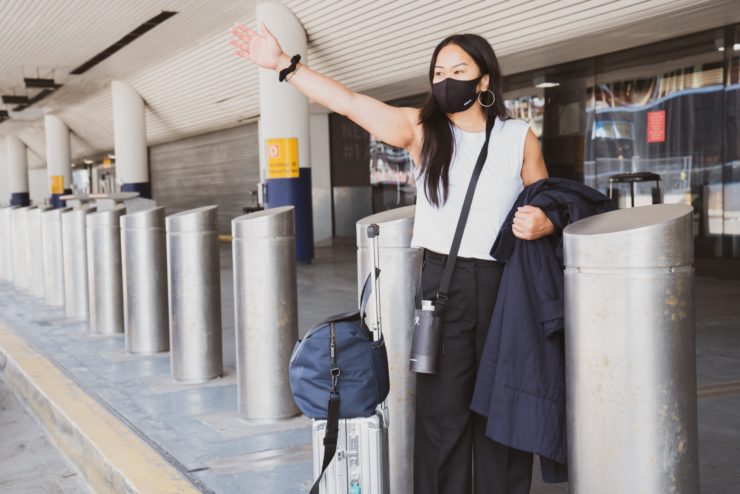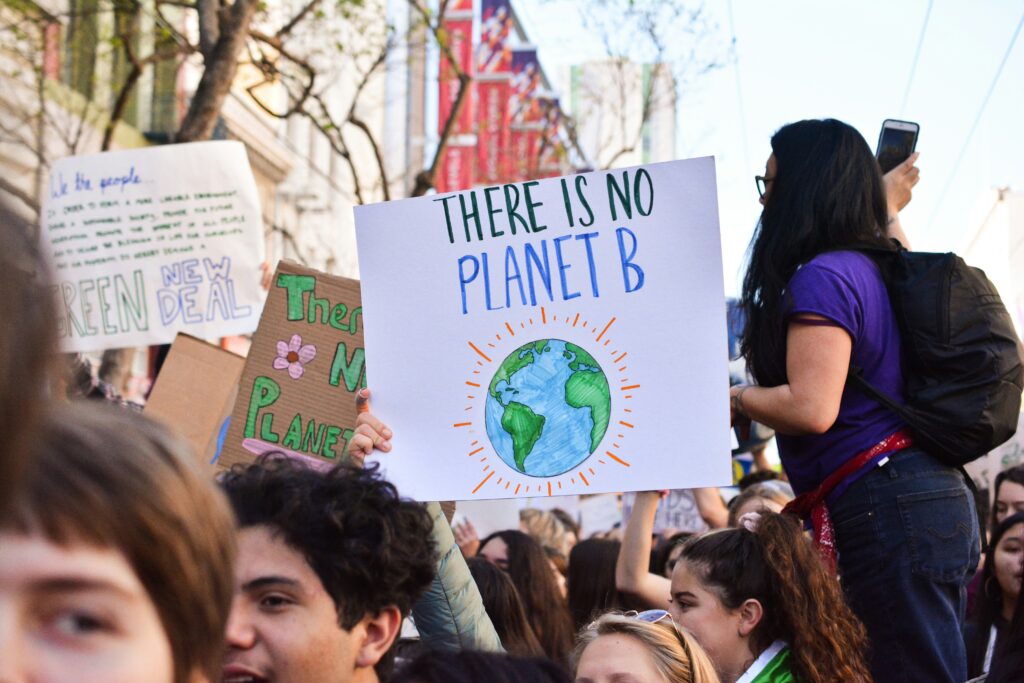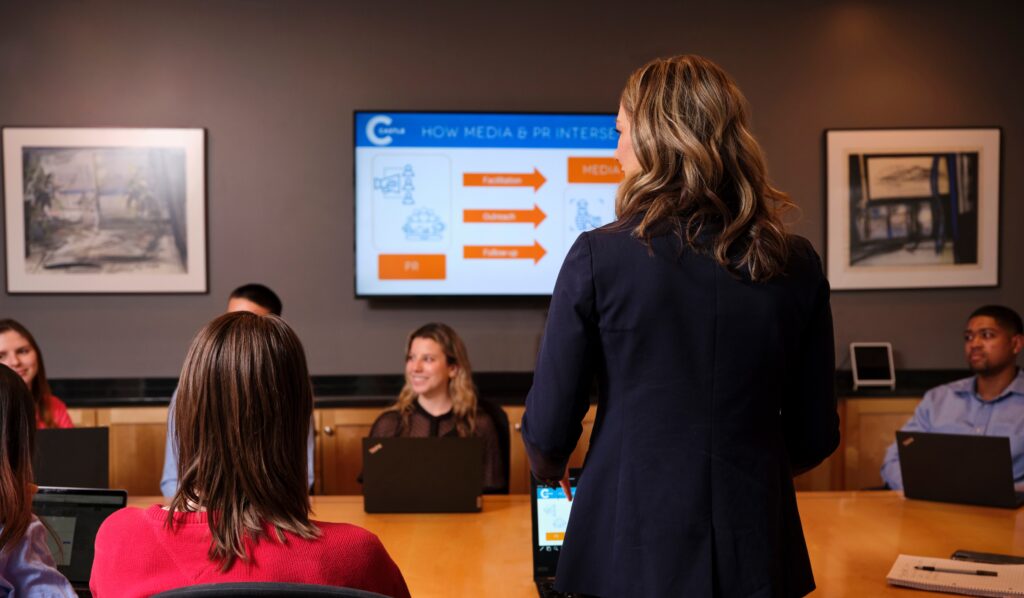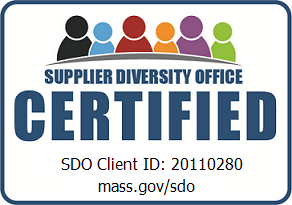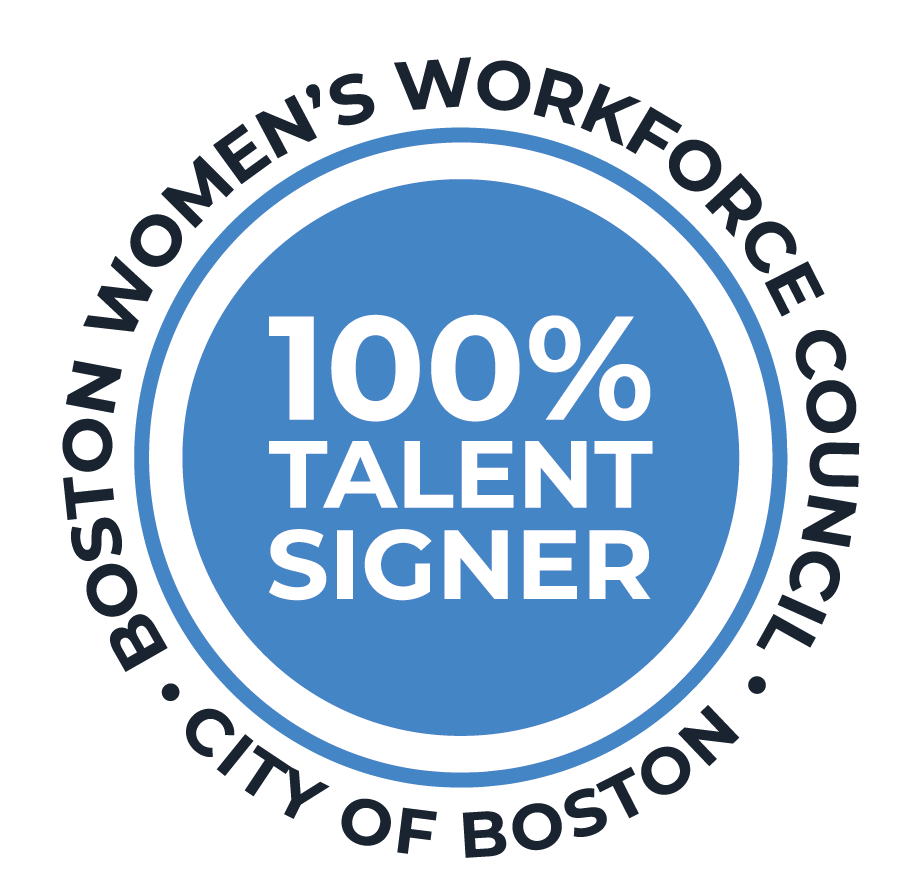For millions around the world work from home days are long, daylight is shorter, and tropical backgrounds are becoming more enticing by the minute. The tourism industry is continuing to offer promotions, incentive deals, and innovative options to work from scenic locations and revamp your workweek.
As appealing as those offers are, coronavirus travel restrictions are changing daily. When planning your getaway, there is so much more to think about today – from travel restrictions by state to travel safety precautions. Whether traveling for business or to satisfy your inner travel bug, we have the resources you need from the planning stages through a safe return home.
TRAVELING DURING COVID: FIRST THINGS FIRST
- Know your risk. Staying home is the best way to protect yourself and others.
- Make decisions with your inner circle in mind. Traveling during COVID impacts all those around you, both personally and professionally.
- Consider alternatives to travel. Innumerable virtual options exist – from family Zoom gatherings to virtual corporate events there is likely a way to creatively accomplish your goals safely from home.
If you have made the decision to travel during COVID, here are some things to keep in mind:
KNOW BEFORE YOU GO
- Deciding where to travel during COVID. If you have the flexibility to choose your own destination, do so thoughtfully. Locations that are only a drive from point A to point B for a quick weekend getaway are the best options. For domestic travel, reference the CDC COVID Data Tracker for COVID counts by state. For international travel, risk levels for each country can be found on the COVID-19 Travel Recommendations by Destination website.
- Timing is everything. Traveling during off-peak times and days such as Tuesdays and Wednesdays can lead to shorter wait times in line and fewer people to cross paths with while on the road or in the airport.
- Take advantage of trusted resources. The World Health Organization has a number of quick links from coronavirus travel advice to vaccine updates and more. The official government website for your destination country will provide all applicable travel restrictions and guidelines. The tourist board website for your destination country can also provide a great deal of insight.
UP IN THE AIR
- Air Travel. Studies have shown that while contracting COVID on airplanes is a fairly low risk due to advanced air circulation systems, this is not reflective of the time spent in the airport. When traveling internationally or on a longer flight, limit the number of stop-overs to reduce the number of people and surfaces you come into contact with. Many airlines are now offering tests either at home or at the airport prior to departure. A number of airports from New York’s John F. Kennedy International Airport to Dallas Fort Worth International Airport have set up express testing centers right on site. Airlines such as American Airlines is offering passengers a number of testing alternatives prior to departure; at-home test kits from LetsGetChecked, testing in select local urgent care locations, or testing on-site at select airports. Despite these growing options, studies agree that public transportation should be avoided whenever possible. Personal cars, walking or biking are considered the best safe travel alternatives.
- International and Domestic Flights. As there are currently no federal COVID regulations for airlines in the United States, each airline has created its own unique set of standards. Most North American carriers require passengers to wear face masks and have instituted enhanced sanitizing procedures. Some airlines have blocked all middle seats and are keeping planes at reduced capacity, offering passengers free rebooking on alternate flights should capacity go above this percentage. Be sure to research your options to find the airline that best aligns with your comfort level. When traveling internationally during COVID, note that many countries are conducting exit screenings, questionnaires about health and travel history, and taking temperatures prior to boarding.
- Know your destination’s requirements. Entry requirements differ by state and country. Keep in mind that your destination may require one or all of the below.
- International Health Insurance
- A negative COVID test prior to departure
- A negative COVID test upon entry
- A mandatory quarantine period upon arrival of up to 14 days
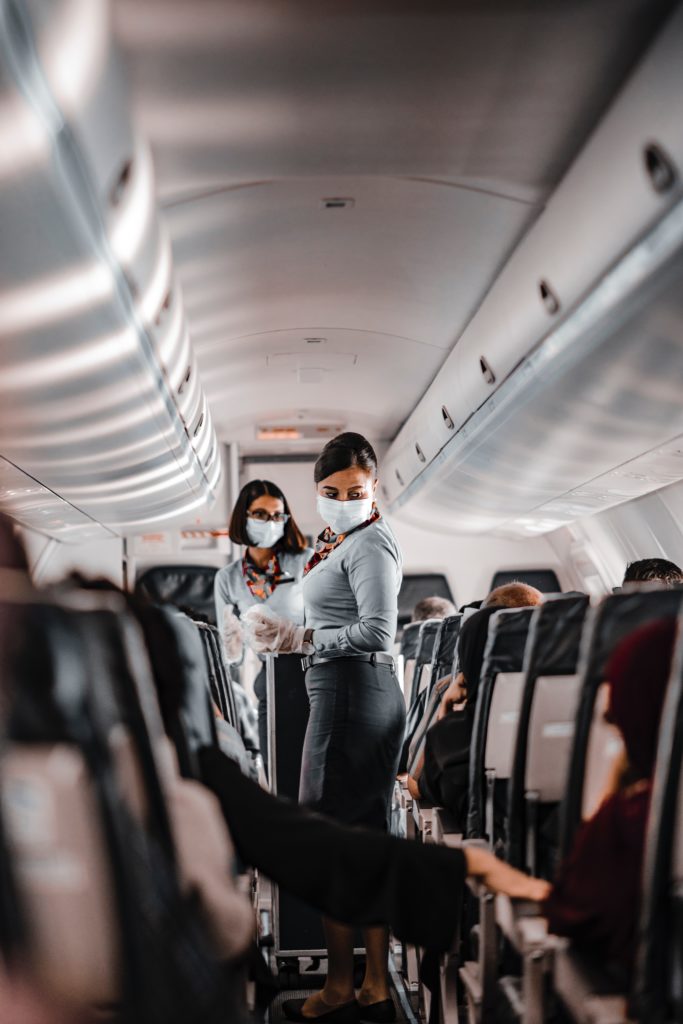
There is often a hefty daily fine for those who do not comply. Ensure that you are aware of regulations in your destination and plan your accommodations and activities accordingly.
ON THE ROAD (OR IN THE AIR) AGAIN
- Be prepared. While airports and nearly all public services now have an abundance of sanitizing products for public use, don’t get caught without the tools you need. Great items to keep on hand while traveling during COVID include sanitizing wipes, hand sanitizers, face mask(s), and BYO snacks.
- Don’t let your guard down. Follow the same hygiene practices and safety precautions you follow at home. Don’t let a few Mai Tais loosen your face mask ties. Continue social distancing practices and select the outdoor activity and dining options whenever available.
- Home away from home. The hotel industry is keeping cleanliness and safety top of mind. Most hotel chains have now instituted remote check-in, keyless entry, mask requirements, and enhanced cleaning procedures. Many hotel chains and vacation rentals alike have also relaxed cancellation policies so individuals can book with extra peace of mind.
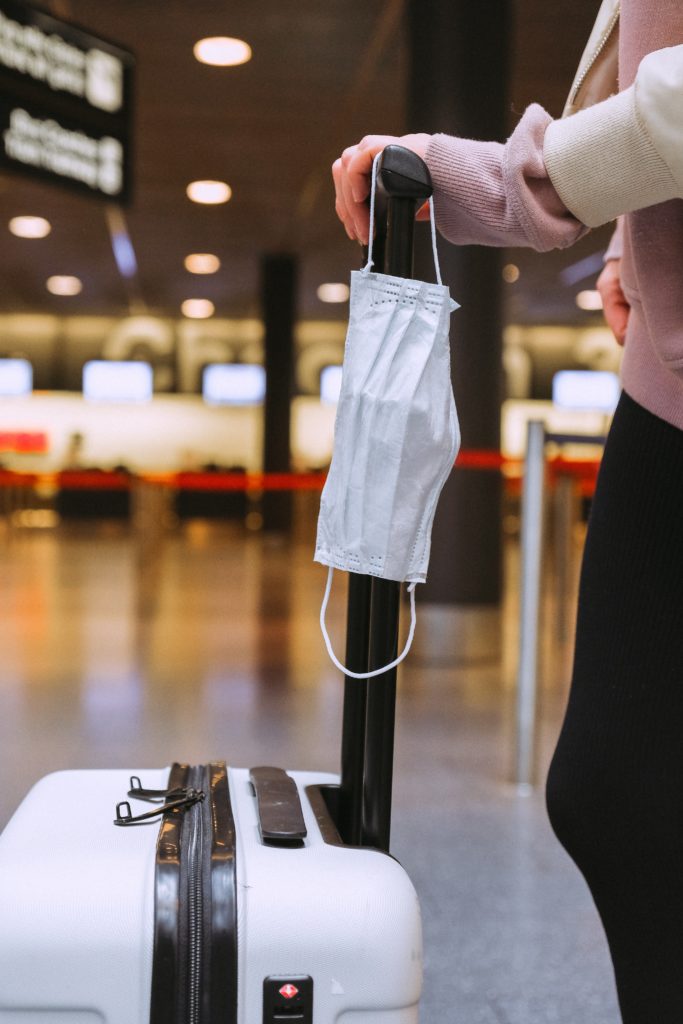
HOME SWEET HOME
- Upon Arrival. Upon entry back to your state or country of origin, be sure to follow guidelines for testing and quarantine.
- Working 9 – 5. It is important to be transparent with your employer about your travel plans, especially if your job requires you to go into the workplace. Your organization may have specific guidelines for a safe return to work, including proof of a negative COVID test or a mandatory quarantine.
The travel industry is hurting right now. Many are anxious to get out of the house and back to their favorite destinations. If you do make the decision to travel, make sure that you do it with the right tools in hand. Bon voyage and safe travels!


